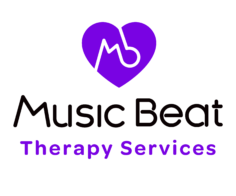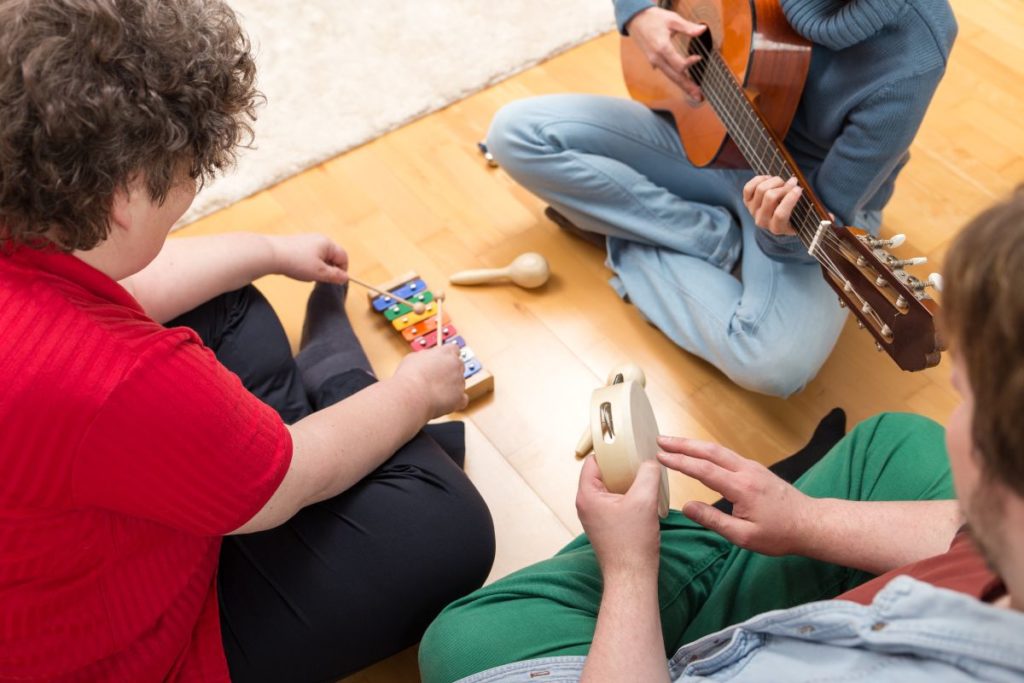8 tips to help children and adults with additional needs to manage change
by Lucia Phelan, RMT, NMT, Team Leader for Wellbeing and Mental Fitness
This month Music Beat Therapy Services welcomed our first clients and families to our new therapy space at Clayfield.
It has been so exciting seeing it all come together, and welcoming our clients and families to their new musical space.
Our Registered Music Therapists have been adding their personal touches to their therapy spaces. We’ve all been looking forward to this change for a long time, and we have planned well for the transition period.
But now that the change is happening, some of us and our families may have mixed feelings.
This provides us with a great opportunity to share some practical strategies for how you can prepare for this transition.
Here are 8 tips on how to effectively manage change for people with additional needs.
Giving as much information as possible can make us feel more secure and help us during the transition process.
1. Provide a social story with photos of what is going to happen
There are many useful templates available online that help children to transition e.g., from kindy to school, or that explain the routine of a dentist visit. Ms Katja has also developed some social stories for our families to help with transitioning to the new clinic.
2. Visit new places beforehand
Like our “Meet and Play” or “Walk throughs” at the new clinic to familiarise yourself with the new place. Find out where carparks are, where the toilets are, what the building looks like.
3. Bring along a favourite toy/item, pacifier, or a family photo
This provides familiarity and supports the child in learning how to self-soothe, or a familiar item like a backpack or sensory material that makes the person feel calmer and functions as a transitioning object.
4. Listen to music while travelling to a new place
It may be helpful to listen to music that makes that person feel good. Our music therapists can support clients in developing individual playlists, and in learning to become more aware of how we respond to different music. Some music may be perceived as supportive, whether it is calming or activating, other music may increase feelings of discomfort and may be avoided.

5. Make up a transitioning song
At Music Beat Therapy Services we love using transitioning songs. These can help children to break up a new transition in multiple steps, to learn the order of the new steps, and to exactly know what’s expected of them and what’s coming next. I suggest using a familiar melody and adjust the words to what is needed. Most important is to use simple and clear language, so that it is easy to follow instructions and comprehend words.
6. Provide reassurance – verbally and/or physically
Show an extra amount of affection and physical closeness if appropriate. This can be as easy as holding somebody’s hand when walking, giving lots of cuddles and hugs or using reassuring words often.
7. Give additional reassurance during specific times
This may be the night before during mealtimes or when saying Goodnight, or the last time you see someone before supporting them through the upcoming transition.
8. Give space to play it out
Let’s act it out! When we engage in imaginative play, we can explore different roles and are allowed to feel powerful and in control. This can be a great way of processing change for children as well as for adults. In music therapy, we can imagine a situation that makes us feel fearful and play this situation out through improvising music to it or writing a song about it.
Please explore our website to learn more about our clinic-based and mobile music therapy programs in the areas of early childhood development, adults, disability, mental health, aged care and rehabilitation.
Alternatively please contact us with your inquiry.

